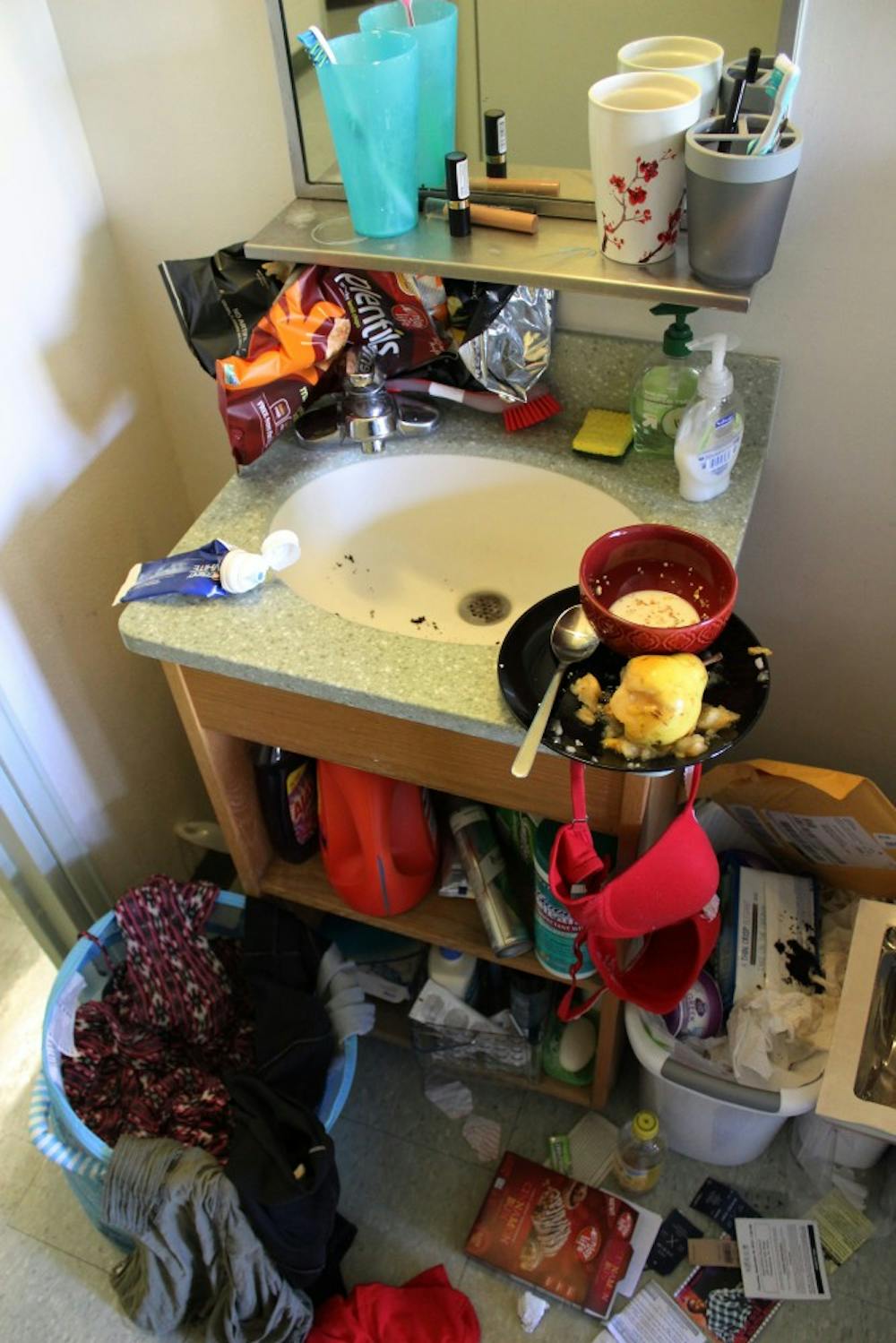“Every few weeks [my roommate] would be screaming terror in his sleep late at night, and I could just never bring it up to him,” College sophomore Brian — who preferred to only use his first name — said. “A few times he yelled my name.”
Like many incoming freshmen, Brian went into his first year at Penn ready to live in the Quadrangle with a randomly assigned roommate.
“Everything was pretty normal and chill at first until around midterms when the stress of freshman year was really being felt,” he said. “But then [my roommate] started doing weird things like wearing the same clothes for several days in a row, sleeping on the hardwood Quad floor, not doing laundry.”
Brian didn’t think much of it at first, but the issues only escalated.
“He would continually buy new clothes instead of washing much, so by the end of the fall, his half of the room was one big pile of dirty laundry — like I couldn’t even walk on the floor between our beds — partially because he would fall asleep on the floor once a week.
“It was hell living with him, but I’m not a confrontational person so I just never said too much about it. In hindsight, I should have made it clear how uncomfortable I was living with him,” Brian said.
Brian is not alone in experiencing a difficult roommate situation. Executive Director of College Houses and Academic Services Martin Redman approximated that between 20 to 25 percent of housing assignments involve a roommate conflict, but that the real issues happen between a smaller subset of students, often one or two residents in the housing assignment.
In Redman’s experience, roommate issues spring up all year long, but may spike in times of academic stress.
“There is no good way to match roommates in an incoming class. Even those who self-select their roommates as a freshman or an upperclassman aren’t immune to experiencing problems.”
While personality tests and matching interests do little to nothing to ensure an amicable roommate environment, Redman thinks that the expectations and experiences which residents bring determine a lot in the roommate relationship.
“Most of the incoming students are coming from family environments and have private bedrooms at home and a bathroom that is relatively private, so it’s a big change to go from that to more communal living, say, in the Quad,” Redman said.
Redman’s most successful method for matching roommates throughout the years, he says, is matching expectations, whether that’s pairing up those students who want nothing from each other or those who want to be best friends.
The biggest problems between roommates stem from a lack of communication and this mismatch of expectations.
“If you have a problem, the best thing to do is to talk it over ... but in our digital age students avoid talking to each other when it’s inconvenient, so problems fester over time until they blow up,” Redman said.
If conflicts cannot be resolved first through residential advisers and then College House staff, behavioral agreements or ultimately room changes are the last resort.
According to Penn Residential Services, which oversees the room-change process, less than one percent of residents request room changes each semester and requests come for a variety of reasons.
Most residents who request room changes end up staying in their original assignments. In fall 2014, fewer than 30 residents changed rooms, despite the higher rates of roommate dissatisfaction.
And sometimes roommate situations become borderline dangerous.
“We had an empty spot we couldn’t fill in time, and that’s when we got the problem random roommate,” junior MS said, who preferred to only use their initials, as “we actually did have some safety concerns with some of their friends.”
MS and their other roommate’s issues with their new guest were nothing special at first.
“She was messy, would use our dishware, would be up all hours of the night until 4 a.m. and 5 a.m. — we all were on different schedules — just very normal bad roommate stuff,” MS said. “And then, we started smelling cigarette smoke coming from her room constantly.”
MS’s roommate had covered her smoke detector with tape since the beginning of the semester, a safety hazard against fire regulation and building rules.
“At that point we got our RA involved and wanted him to tell her that she can’t smoke indoors in the high rises — this isn’t Mad Men.” Their roommate continually denied smoking, but did not permanently stop.
“Around fall break it didn’t get any better, since she started having a guy live in our room and we didn’t feel safe,” MS said. “She never introduced him to us and he basically lived there until December. We never met him, and he didn’t speak to us — so we had a new male roommate we didn’t know. There were a lot of loud sex noises at all times of the day.”
Tensions boiled over by winter finals “when she threw a party in her room and then locked herself out,” they said. “She was banging so hard on the door for us to let her in at four in the morning to the point that I thought the door was going to break down.”
At the end of the semester, MS and their other roommate met with the house dean about the conflicts and to request a change for the spring semester.
“He was so helpful and gave us numbers to call if we ever felt threatened, and he was concerned about the random guy living with us and made sure he wouldn’t be allowed back in,” they said.
MS’s problem roommate changed assignments in the beginning of the spring semester, and her replacement was much more amiable.
“My experience tells me that roommate issues here occur across the board — it doesn’t matter if you’re a first-year resident in the Quad or an upperclassman in the high-rises,” Redman said.









